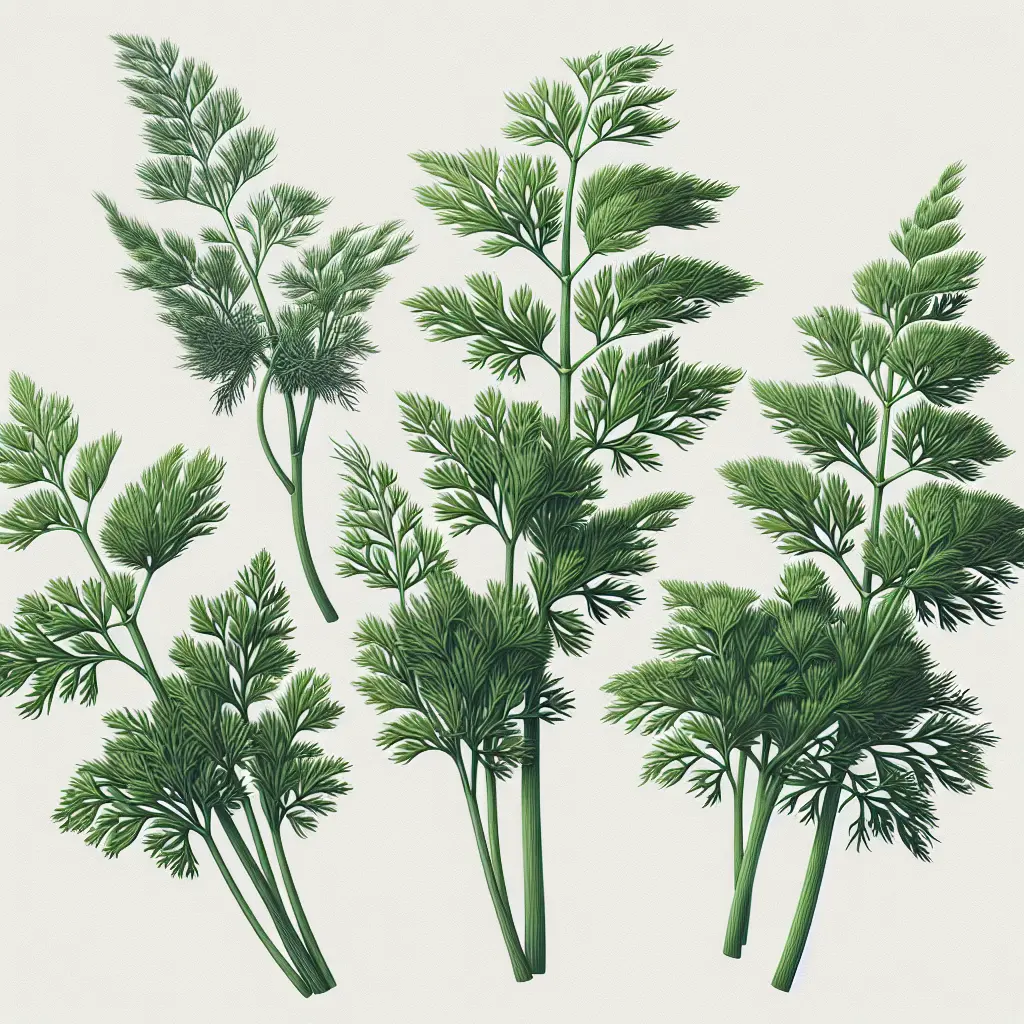Dill: A Culinary Herb with Surprising Benefits
Dill, a member of the parsley family, is a popular culinary herb known for its distinctive flavor and aroma. While it is often used to enhance the taste of fish, salads, and even pickles, dill is also gaining recognition for its potential health benefits.
Nutritional Profile
In terms of nutrition, dill is a low-calorie food with a serving size of five sprigs containing just 0.4 calories. It provides trace amounts of protein (0 grams), fat (0 grams), and carbohydrates (0.1 grams), along with a small amount of fiber (0 grams). Dill does not contain any sugar.
Medicinal Properties
Beyond its culinary uses, dill has been traditionally employed for medicinal purposes. Modern research is now uncovering the scientific basis for these traditional claims.
-
Antioxidant activity: Dill contains antioxidants, which help protect cells from damage caused by free radicals. These antioxidants may play a role in reducing the risk of chronic diseases such as heart disease and cancer.
-
Anti-inflammatory properties: Dill has been shown to possess anti-inflammatory properties. It may help reduce inflammation throughout the body, which can alleviate symptoms associated with conditions like arthritis and asthma.
-
Digestive support: Dill has traditionally been used to support digestion. It contains compounds that may help stimulate gastric secretions and improve gut motility, promoting regularity and reducing gas and bloating.
-
Mood enhancement: Some studies suggest that dill may have mood-boosting effects. It contains compounds that may interact with neurotransmitters in the brain, helping to improve mood and reduce anxiety.
Incorporating Dill into Your Diet
Dill is a versatile herb that can be easily incorporated into your diet. Here are a few ways to enjoy its flavor and potential health benefits:
- Add fresh dill to salads, soups, and stews.
- Sprinkle dried dill over roasted vegetables, grilled fish, or scrambled eggs.
- Make a dill sauce by combining chopped dill, Greek yogurt, and lemon juice. Serve it with grilled meats or as a dip for vegetables.
- Brew dill tea by steeping fresh or dried dill in hot water. Enjoy it as a relaxing and flavorful beverage.
Conclusion
Dill, a modest culinary herb, packs a surprising punch when it comes to health benefits. Its low-calorie content, antioxidant activity, anti-inflammatory properties, digestive support, and mood-boosting potential make it a valuable addition to any healthy diet. Whether you enjoy it fresh, dried, or in tea form, dill is a versatile and beneficial herb that deserves a place in your kitchen and your wellness routine.
How many calories are in Dill?
Each 5 sprigs of Dill contains 0.4 calories.
Dill Nutritional Information
| Nutrient | Amount per 5 sprigs (1g) |
|---|---|
| Calories | 0.4 Calories |
| Protein | 0g |
| Fat | 0g |
| Saturated Fat | 0g |
| Cholesterol | 0mg |
| Carbohydrates | 0.1g |
| Dietary Fiber | 0g |
| Sugar | g |
| Sodium | 0.0006mg |
| Potassium | 0.0074mg |
| Calcium | 0.0021mg |
| Iron | 0.0001mg |
